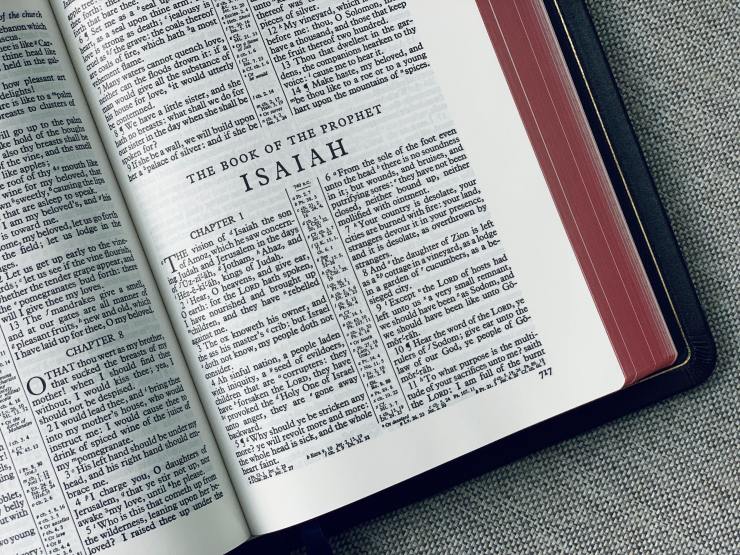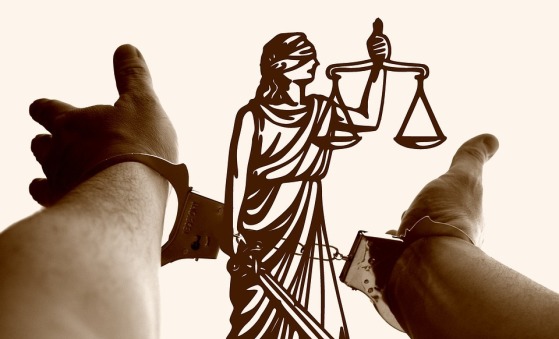
Jewish academic and Hebrew scholar Irene Lancaster reflects on the enduring popularity of Isaiah.
The Book of Isaiah has probably never been surpassed. For many it is their favourite part of the Bible. The prophet Isaiah lived in the 8th century BCE and was adviser to a number of Judean leaders, including King Hezekiah.
The Book of Isaiah consists of 66 chapters, which are themselves sub-divided by many commentators into three sections.
Section 1 comprises chapters 1-39. Its main theme consists of a number of warnings followed by judgement. Judah is judged, but so are the nations of Babylon, Moab and Egypt. The northern Kingdom (Ephraim) is also taken to task, mainly for reliance on Egypt.
Section 1 ends with the Assyrian invasion and the role of the King Hezekiah. Only through a miracle is the destruction of Jerusalem averted.
Section 2 comprises chapters 40-55. These chapters are, by contrast, full of comfort and hope. The Jewish people are fast forwarded from the 8th century BCE to the 6th century BCE, where they find themselves in Babylonian exile.
G-d now promises redemption and return to their native land, together with its restoration. King Cyrus of Persia plays a role in this story, elaborated more fully in the Books of Ezra and Nehemiah. Cyrus allows the Jews to return to Jerusalem and to rebuild their Temple.
Chapters 49-55 include the Songs of the Suffering Servant, normally regarded as the Jewish people herself.
Section 3, the end of the Book of Isaiah, comprises chapters 56-66. Restoration and renewal are completed with the vision of Jerusalem rebuilt, together with universal peace.
G-d's renewed covenant insists on justice and mercy, righteousness and peace. Only then will people flock to the new Jerusalem and a new heaven and a new earth arise.
Why spend so much time on the Book of Isaiah?
At this time of year, from the Fast of Av until Rosh Hashana (Jewish New Year) a different weekly reading is taken, mainly from the 2nd section of the Book of Isaiah, but also from the 3rd, to accompany the Shabbat readings from the final Torah Book of Deuteronomy.
These prophetic readings attenuate the often stark message from Moses to the Jewish people, as, without him at the helm, they embark on their journey across the Jordan.
This period of time is called the seven weeks and its readings are known collectively as the seven Haftorot of Consolation.
The first such reading from Isaiah 40 is the instruction to the Jewish people to simply be comforted. The second reading comprises Isaiah 49:14 - 51:3. Here G-d appears to have abandoned Jerusalem.
But now we come to Haftorah Re'eh, recited this Shabbat. This third reading, Isaiah 54:11 - 55:5, acknowledges that Jerusalem currently feels like an unmoored boat, 'afflicted, storm-tossed, unconsoled.'
But half way through this reading, the people are suddenly uplifted by the call to all who are hungry and thirsty to come and eat and drink. The currency is now righteousness.
And by the fourth week, G-d actually states: 'It is I, I am He Who comforts you.'
Week three, this week, is a turning point. The city is now being rebuilt in justice and mercy, righteousness and peace. The people realize that they can rely only on G-d. No other nation will help them for long, especially when the chips are down.
On the contrary, the newly restored Jerusalem will itself attract the other nations of the world who, instead of mocking and enslaving the Jewish people, or worse, will actually come and learn from them.
Never have these readings been as relevant as today. At a time when, once again, Israel has been, as at the time of the Holocaust, abandoned by religious leaders and political organizations alike, she is nevertheless attracting more immigrants than ever, as well as countless volunteers from all over the world.
Moses' quest in this Deuteronomic chapter of Re'eh is to set out a roadmap for the new generation about to enter the Promised Land. Isaiah's parallel mission offers comfort and nourishment to those who still find themselves at sea.
A powerful message, and never more so than in our own day.
Republished from Christian Today UK.




